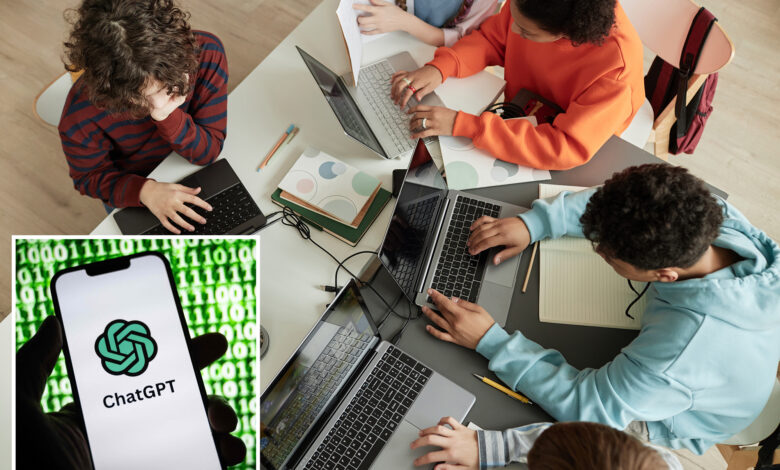1 in 5 American teens who have heard of ChatGPT use it for their tasks

More like CheatGPT.
About one in five teens who have heard of ChatGPT admit that they use OpenAI technology to help them with their schoolwork. A new study from the Pew Research Center has found.
The researchers determined that most teens are aware of ChatGPT, leading them to conclude that 13% of all American teens have used the chatbot to complete their tasks.
The team surveyed teens ages 13 to 17 and found that older students are particularly likely to use ChatGPT for classwork.
“It’s out there,” Pengcheng Shi, associate dean of the Department of Computer and Information Sciences at Rochester Institute of Technology, told The Post on Monday.
“You can’t stop people from using it, so now the question is how best to use it,” he added.
ChatGPT has raised many questions since it was released for public use almost a year ago, one of which is important: When is it ethical and acceptable to use?
The Pew Research Center found that most students think it’s okay to use ChatGPT to research a new topic, but not so much to solve math problems.
Few teenagers thought it was acceptable to use it to write essays.
About 20% of students admitted to being unsure about the ethics of using technology in those three scenarios.
“I think the pressure here is less on the students and much more on the professors to really find a way to incorporate new technologies,” Jamie Cohen, an assistant professor of media studies at CUNY Queens College, told The Post.
He equated banning the use of ChatGPT with teaching abstinence in sex education classes, which has been linked to higher rates of teen pregnancy.
“You have to explain how these systems work, what the data sets are, why they are flawed and why this is not an acceptable way to deliver an article,” Cohen said.
Shi agrees and does not consider using ChatGPT as cheating, but instead encourages teachers to adapt to the new technology.
Shi believes educators should rethink how to teach and assess students, encourage creativity, and reevaluate educational goals.
However, some teachers and administrators do view the use of AI as cheating, and several scandals have unfolded across the country.
As more people use ChatGPT and other advanced technologies, some experts warn that some college degrees and jobs could become obsolete.
But others insist that these claims simply instill fear.
“This is just one iteration of future technologies that will emerge that will accelerate learning or knowledge gathering,” Cohen said.




